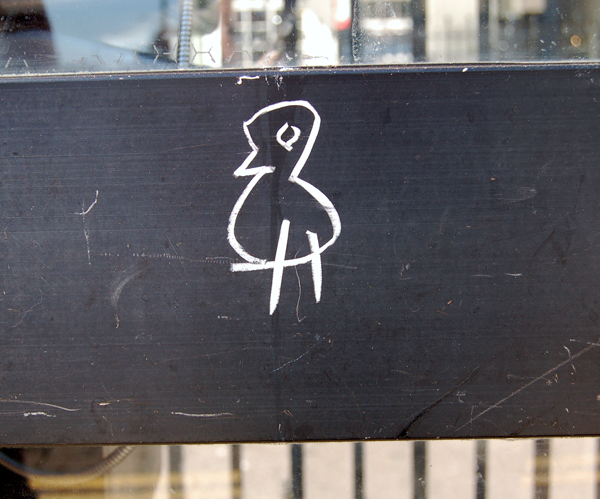Dan Chiasson has written poems from the perspective of an elephant and a fourth-century rabbit mosaic, dedicated others to narrating impenetrably symbolic dreams, and taken what one would be tempted to call a confessional style and twisted it into telegraphic language and emotional ellipsis. His third book, Where’s the Moon, There’s the Moon (2010), opened with a sort of mock table of contents or poeticized quasi-argument of the type that would appear before a canto of an epic. It proposed, among other things, that “Here follows an Account of the Nature of Birds” and “Here follows the address of a place to buy cocaine.” But Chiasson’s fourth book, Bicentennial, evinces an author more frequently given to poetic sincerity—and not in the manner of, say, Robert Lowell (about whose work Chiasson wrote in his critical book One Kind of Everything as well as in his undergraduate thesis). Rather, Chiasson, with both grief-stricken solemnity and ready wit, bears himself in a way that draws us into the work and, to borrow a phrase from Richard Wilbur, “calls us to the things of this world.”
 Bicentennial’s first poem, “Overtime,” begins in one of Chiasson’s familiar modes, playful and prosaic (that is, sounding like prose), as he likens life to a game of “alternate basketball nobody plays,” one in which
Bicentennial’s first poem, “Overtime,” begins in one of Chiasson’s familiar modes, playful and prosaic (that is, sounding like prose), as he likens life to a game of “alternate basketball nobody plays,” one in which
Both players try to tie the score:That way, at the buzzer, the game isn’t over.Look, a show of courtesy: the winning playerIs helping the loser score, the wayOur youths assist the cold, suffering elderly.
But of course life doesn’t work this way, and the end of the poem ends with the end of life:
The score climbing in never-changing change—Until the day the backboard shattersAnd the blackboard blossomsWith arcane formulae and blackbird wings.
The emotional pitch, hallucinatory imagery, and strong musicality are impossible to miss; the tone ascends to an ecstatic mode not present in Chiasson’s earlier work. With such blatancy of effect, Chiasson almost falls off into the simplistic; the poem’s big finish risks reducing what comes before it to mere build-up for beauty. But Chiasson’s gamble pays off: he achieves a deeply stirring, vivid entry into the book. There is no other passage in Bicentennial quite like this, but the overflowing feeling, unguardedness, and sincerity of these lines flash across it.
In Chiasson’s first book, The Afterlife of Objects (2002), a neighborhood boy maliciously taunts him in his childhood with “Fucker doesn’t / have a father,” and Chiasson remarks to us, “He’d read his Freud. / He knew / the blueprint of this poem, and others // I will have to write." With Bicentennial, Chiasson comes through with those poems. Borrowing a sound palette from both Stevens (“Nothing that is not there and the nothing that is”) and Frost (“For once, then, something”), Chiasson writes in “Father and Son” that a pair who never knew each other (he and his father, it is implied) later saw “That never knowing one another, there was nothing // Not to know.” Even though their relationship was “nothing,” and the son hoped “that when nothing ended it might be // If not an event, at least a nonevent,” we read that “in the end, when it happened, it wasn’t.” The repetition of the abstract nouns, absolutes, and negations in the poem makes its warm-blooded emotion that much more unnerving and affecting.
Chiasson, with both grief-stricken solemnity and ready wit, bears himself in a way that “calls us to the things of this world.”
But overall, Chiasson is more likely to ground his mourning in particularities rather than abstractions. For instance, in “Obituary” he writes that “Dawn awoke and rose one person down that day. / Across the Universe, the obituary and I / Engulfed a granola and yogurt parfait,” binding the cosmic ironically to the trappings of the quotidian. This gesture (common to American poetry at least since Eliot, but still effective) echoes throughout many poems in Bicentennial in their sense of layered dualities—being at once in the past and in the present, with the father and the son, in the imagination and reality, egocentric and selfless. The rest of “Obituary” itself weaves together a number of these qualities. Essentially daydreaming, the poet-speaker says his father
. . . changed his name. He synchronized ChristWith deep time, a paleontologist turned priest.He taught the Inuit not to shiver or shoutWhen they enunciated pure Canadian:They traded their own pelts for the cool ESL.
And of himself, Chiasson writes,
I stood sentry and watched my own reentryExpecting a theft, never expectingTo witness myself absconded when I absconded,Both looter and loot, at night, on foot . . .What happens to me now, no one can say:When the sun breaks now it just breaks even;Somewhere the cockcrow cul-de-sac alarum sounds;The curtain falls and so concludesMy offensive, possibly illegal vaudeville act.
Chiasson has drifted away from some of the poetic structures that governed much of The Afterlife of Objects. Many of those poems were written in couplets in fairly long lines, with six or seven irregular feet. Others were written in much shorter lines, one to three beats in length, with stanzas—if such short units qualify as stanzas—vacillating between single lines, tercets, and again, most often, couplets. While short lines may favor the songlike, Chiasson’s earlier poems don’t really play out that way. They tend to favor the epigrammatic, enigmatic, imagistic, and motile—short phrases of packed moments. For instance, the first stanza of “Spade”: “I dreamed I was the spade / my mother used.” The entire first section of “Matter” states, “They found her purse in Africa,” and then the poem breaks off with an asterisk. Bicentennial, on the other hand, continues along the trajectory evident in Where’s the Moon, There’s the Moon: Chiasson favors four- or five-beat lines, often in tercets, and, in both books’ title poems, octaves. Chiasson joked in Natural History’s “The Elephant” about Stevens’s “lumbering tercets,” but they are becoming one of his preferred forms. Though it is not worth making too much of, Chiasson has in Bicentennial decided for the first time to capitalize the first word of every line. To cap or not to cap is a decision every poet must make, and it may suggest that Chiasson is indeed looking back to influences such as Stevens, Frost, and Merrill (all masters of the rhythms of speech—even when, in the case of Stevens, it could be baffling or improbable speech).
In any case, Chiasson’s recent formal choices allow for more flowing narration and the tracing of thought than those that shaped his earlier poems. The possibilities present in these choices lead unexpectedly to Bicentennial’s two short plays, one of which, “The Ferris Wheel in Paris,” features a man and a faerie conversing partly in loose blank-verse tercets (though also prose and couplets). On an “empty stage,” the man expresses a wish to exist, a wish the faerie can grant provided that the man first, paradoxically, “exit the stage.” The poem is elusive, circular, and riddling, but never before has Chiasson let words roll along with such ease, or grope at expression so fluently:
MAN:There would have to have been, first, something:First darkness, then a stage;Then an actor and an audience;There must have been a single play,And then the idea of theater,And the human drive to be entertained,And before that, just to be happy[.]
Uniting the openness, layering of times and perspectives, and the narrative rhythms and lines that run throughout this book, its last poem, the title poem, is the definitive representation and primary achievement of Chiasson’s early mid-career poetics. While “Where’s the Moon, There’s the Moon” shares the octaves of “Bicentennial,” Chiasson has traded the former’s allegorical character—in his bedroom, a child reads an imagined story of the relationship between a boy and his father who is the keeper of the moon’s light—for the urgencies of reality, the pressing on the individual mind of memories, histories, and lives. Chiasson himself is now the child in the bedroom:
Now it was 1976, and my body in my bedFelt for the first time what being part of a countryFeels like, a memory of flags and songsAnd foods I’d never had before,For it was the country’s birthday, the countryWas having its birthday party, in a park, by the lake.
The poem roams freely through time, reaching out to people life left behind: “the night she [Princess Diana] died late, / In New York in the era when my friends and I / Did copious amounts of ecstasy at parties / And when it hit you, you simply shone.” Or:
the neighborWho moved to Boston and became a catererBefore he moved back home into his bedroom4.Where his parents cared for him the year he died.He’d been my babysitter, the only boyWho ever cared for me, and I rememberHis patience in watching me play, for heToo seemed to have kindness as part of his code[.]
The poem, though forthcoming, forgoes reflecting on the narration. It ends with a panorama that pulls into the personal:
And there’s the National Guard, and the Rotarians,And there’s my daddy, though he never knew me,My handsome daddy, happy, dancing the day away,My tall, handsome daddy and his brand-new family,Just starting out in life, elated at the thoughtThey’d made it this far, to this enormous partyThe country threw for itself—because who else would?—One billion years ago, today, on its birthday.
In the book’s acknowledgments, Chiasson thanks the first readers of “Bicentennial,” which he says he finished in one day in July 2011—a retrospective outpouring that Wordsworth might have called a “spontaneous overflow of powerful feelings” from “emotion recollected in tranquility.” Such a conception of poetry privileges the slow accretion and unspooling of meaning over the meticulous single phrase. In this way, “Bicentennial” is designed to appeal more to readers who delight in the act of reading and following the flow of thought than to those who want to puzzle a poem out. Shuffling together birthdays, death-days, memorialization, celebration, families, friends, the personal, and the historical, the poem knows that explicit commentary on such themes risks descending into self-satisfied platitudes. But left inchoate, they are moving, dense, and for real. Along the way, the poem commemorates a number of people who have, or have had, “kindness” as part of their “code.” The spirit of generosity and openness celebrated here, and valued throughout Bicentennial, is part of the book’s code, too.








